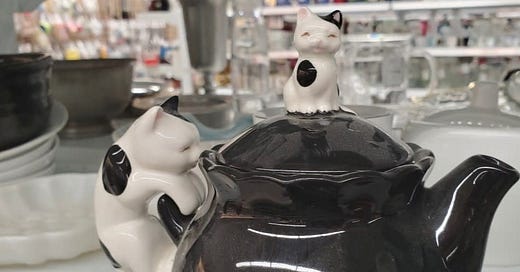This is a nice little profile of an Appalachian roadside burger joint, with fresh beef and ingredients prepped every day. I bet the burgers are not $18, either.
This bit is interesting:
Chef Sean Brock, a native son of these mountains and an evangelist for Appalachian food and ways, says that what strikes him when he’s standing in the parking lot of this place is grit. “You start thinking about how a burger at a place like Robo’s can be this thread that connects, this chain that links together that just keeps going,” he says. “My mom talks about going there as teenagers, and it’s crazy that it’s still there.”
As is this:
Robo’s busiest day of the year is the day after Christmas. Looking to reclaim something about themselves or just to remember, people raised here and visiting for the holiday skip interstate fare for something more familiar. That’s the truth of this place. You can always go home again.
I think this captures why even minor changes in small towns often arouse so much anger, and such a sense of loss. Things like this are landmarks—physical, mental, and emotional. Things change, but it’s okay to mourn what was lost. And here, where it’s still trucking along? It’s good to celebrate it too.
Traditional buttons, knobs, and switches have a tactility that allow drivers to intuitively find and adjust them while keeping their eyes on the road. A slippery touchscreen does not. Analog controls are also permanently positioned, whereas a touchscreen may require additional navigation to reach a feature.
Any person who drives should be able to tell you this. Yet car manufacturers increasingly make the displays and entertainment units of cars like they’re TVs. I wouldn’t be surprised if this is one of the factors in the increase in pedestrian fatalities over the last decade.
This company has been a failure at digital media, and has succeeded by embracing the most antiquated technology of them all: the printed book.
That’s quite an achievement. So let’s look at the turnaround at Barnes & Noble.
And:
I could draw many other lessons from the Barnes & Noble turnaround. I praise its decentralization, and its willingness to empower booksellers at the local stores. I like the way the stores look nowadays, and the improved selection on the shelves. But the key element uniting all of this is putting books and readers first, and everything else second.
The last time I did any real shopping or browsing in a Barnes & Noble was in summer of 2019, in a newer location that felt boxy and soulless, like a Best Buy. I had no idea the company had since begun a turnaround, to the point where in 2023 they’re expected to open more stores than in 2022.
One thing Gioia notes is that the company’s new CEO is devolving much more decision-making power to the local stores, in terms of where to display books and even which books to stock. This sort of curation, and attracting and empowering employees who actually love books, was something Borders used to do, to an extent. They went out of business, of course, but not because they did that, and not for the reasons that B&N appears to be succeeding.
Living through the past, Notes from the Field, Katrina Gulliver, June 7, 2022
It’s interesting to look at an example like this train—which now serves largely as a tourist enterprise—and see some of the old adage that poverty is the handmaiden to preservation. Something can become too old to be particularly relevant but as long as it's not actually ripped out and replaced, there’s a chance of it hanging in long enough to become “heritage” and thus tourist interest.
An example of this is the Blue Tram in Barcelona. And New Orleans’ streetcar network. The streetcars that now delight tourists from all over the world (and still serve as public transport for some people in the Garden District and students at Tulane) were once just a lingering artefact of old infrastructure. In a richer city than New Orleans, they’d have been gone by the sixties. As they were in many other cities, to preservationists’ regret.
This is one of those things I wish I wrote. It’s a short read and a wonderful little reflection on travel and change or lack thereof. Read the whole thing!
Related Reading:
Thank you for reading! Please consider upgrading to a paid subscription to help support this newsletter. You’ll get a weekly subscribers-only post, plus full access to the archive: over 500 posts and growing. And you’ll help ensure more material like this!




Thank you for the link, very kind!
Great roundup, full of interesting links.
Thank you!